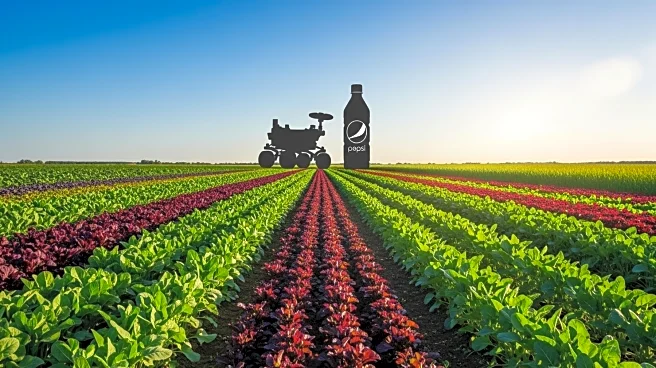What is the story about?
What's Happening?
ADM, a major American multinational ingredients company, has announced that it has surpassed its 2024 sustainability target by achieving five million acres of regenerative agriculture a year ahead of schedule. This milestone was reached through the adoption of practices aimed at restoring soil health and natural resources, which also resulted in a reduction of over one million metric tonnes of Scope 3 emissions in 2024. Additionally, ADM has sequestered 363,000 metric tonnes of carbon. The company has been supporting farmers with training, technology, and financial incentives to transition to these sustainable practices. In a new development, ADM has partnered with Mars and PepsiCo to further scale regenerative agriculture across rapeseed and wheat farms in Poland, covering 5,454 hectares. This partnership aims to provide farmers with a holistic approach to land management, supported by financial and technical assistance, and a sustainability calculator to optimize emissions reduction.
Why It's Important?
The advancement of regenerative agriculture by ADM, along with its collaboration with Mars and PepsiCo, signifies a significant shift towards sustainable farming practices that could have wide-reaching impacts on the agricultural industry. By reducing emissions and enhancing soil health, these practices contribute to environmental sustainability and climate resilience. The partnership with major corporations like Mars and PepsiCo also highlights a growing trend among large companies to invest in sustainable supply chains, which can lead to increased market opportunities and economic benefits for farmers. This initiative aligns with broader industry goals, as PepsiCo aims to implement regenerative practices across 10 million acres by 2030, and Mars targets one million acres within the same timeframe. Such efforts could set a precedent for other companies to follow, potentially transforming agricultural practices on a global scale.
What's Next?
ADM has not yet announced new acreage targets for 2026 or beyond, but the company, along with Mars and PepsiCo, is open to expanding the regenerative agriculture scheme to other geographies and crops. This expansion could further enhance the resilience of agricultural systems and contribute to global sustainability goals. As these companies continue to support farmers in adopting regenerative practices, they may also influence policy discussions and encourage more stakeholders in the agricultural sector to prioritize sustainability. The success of this initiative could lead to increased collaboration between corporations and farmers, fostering innovation and driving the adoption of sustainable practices across the industry.
















